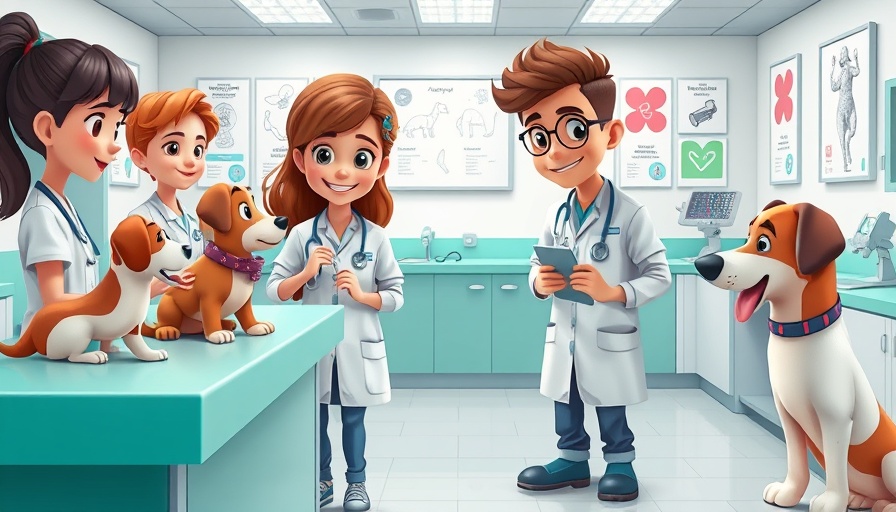
The Hidden Costs of Caring for Your Four-Legged Friends
As a proud pet owner, it’s crucial to stay aware of the common health issues your furry friends may face and the associated costs of veterinary visits. An analysis of Nationwide's database reveals that many pets encounter health issues that can have both emotional and financial implications for their owners. According to Dr. Emily Tincher, Chief Veterinary Officer at Nationwide, understanding these common conditions is essential for proactive pet care.
Top Reasons for Veterinary Visits
Among the myriad reasons that bring our pets to the vet, skin allergies have emerged as the predominant concern for dogs. This common issue has significant financial ramifications, with an annual cost reaching upwards of $841 for pet owners. Other leading health issues include gastroenteritis, dental disease, osteoarthritis, and kidney failure. Each of these conditions necessitates varying degrees of ongoing treatment, making it vital for pet parents to stay informed about the health risks they face.
Unpacking Pet Health Costs
The financial aspect of pet care can be daunting. For instance, a diagnosis of dental disease can average around $1,284 in costs during the first month of treatment alone. Chronic conditions further complicate the situation, as they often lead to prolonged treatment plans, which can deeply affect your budget over time. For example, cats can face an annual cost of $2,240 for diabetes treatment, which highlights the importance of being prepared for unexpected health challenges.
Why Knowledge Is Power
The more you know about your pets' health risks, the better equipped you are to handle them. Recognizing the signs of common ailments early on can reduce long-term expenses and contribute to your pet's overall wellness. Practicing routine health screenings and maintaining a healthy diet can also be invaluable. Incorporating natural remedies and holistic health approaches into your pet's routine may reduce the severity of symptoms and the need for costly veterinary visits.
Proactive Pet Care Strategies
To help control costs associated with veterinary visits, consider these proactive strategies. First, prioritize regular check-ups and vaccinations to catch potential issues early. Additionally, foster a nutritious diet focused on holistic health, which can support your pet's immune system and overall well-being. Understanding the impact of nutrition on health can provide pet owners with the knowledge to make informed dietary choices for their furry friends.
Make Informed Choices for Your Pets
Ultimately, the emotional connection we share with our pets emphasizes the need for proactive care. By understanding common health issues and the costs involved, pet owners can tackle the financial challenges of veterinary visits more effectively. Staying informed about each pet's specific risks and implementing preventive care strategies—be it nutritional insights or natural remedies—ensures our pets lead healthier, happier lives.
Take Initiative: Consider having an open conversation with your veterinarian about holistic health options and preventative care. Your attention now can make a significant difference in ensuring your beloved pets enjoy a healthy future.
 Add Row
Add Row  Add
Add 




 Add Row
Add Row  Add
Add 

Write A Comment